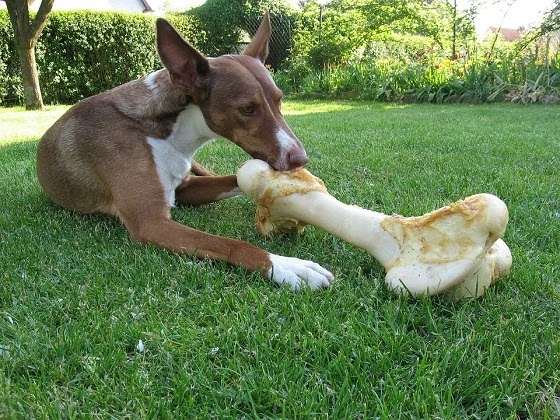Fresh food for dogs is beneficial if given in quantities with specific ingredients
 |
| Fresh food for dogs |
Fresh dog food is a wise choice! When you're trying to feed your dog the best you can, it can be challenging to navigate. Let's see how this type of food can be a wise choice!
In the face of a growing dog food market, the well-being of our pets is more of a focus than ever before. Owners who have the time make the dog's meal. If you also want to get started, here is some information on fresh food to offer your four-legged companion.
Fresh food for the dog
Why feed your dog fresh food?
Store-bought croquettes or pies aren't the only options available to pet owners.
The main benefit of switching to homemade food is the ability to adapt the composition and ingredients to the specific needs of the animal.
A dog with urinary stones will get a more balanced diet thanks to a home diet consuming water and other foods that are relatively limited or structured.
Homemade preparations do not contain additives and preservatives and the weight of the animal is controlled by food free from unnecessary fats.
A fresh home ration allows you to choose the best ingredients with the help of your veterinarian, especially to satisfy your dog who prefers tasty treats.
How do you prepare fresh food for your dog yourself?
Preparing fresh food for your dog is relatively simple. And complicated at the same time!
Some preliminary recommendations: Regarding fresh meat, avoid bones as they may distort the calculation of the final amount. Well, all the ingredients to prevent this type of pet in your dog's dish.
Make it easier. The good idea is to freeze fresh food prepared in large quantities and put the appropriate serving at mealtime.
Advice when buying meat: Ask the butcher to provide you with unsold or unsaleable produce. This meat is much cheaper than what is offered on the counter.
It is best to avoid (over)cooking or steaming. Nutrients will be better preserved.
Quantities and ingredients of fresh food for the dog
In the 1980s, fresh dog food included one-third of fresh meat, one-third of starchy foods, and one-third of vegetables.
This simple formula seems to work for everyone. Today thanks to the progress that allows us to understand better the physiology of dogs, their quantity and components, which must be adapted according to the dog. It would be a matter of preparing a meal containing the following ingredients:
1. Vegetables
You can add various cooked vegetables to your dog's home diet, such as beans, carrots, and zucchini, which will be mixed with meals. To see a list of whom we can give or not, take a look at the article dedicated to fruits and vegetables for the dog.
2. Protein (meat or fish)
You can give him all meats, such as chicken, duck, and beef. You can give it raw if you are sure to respect the cold chain. Otherwise, cook a little. As for fish, it is best to cook it before serving it to your dog. The number of proteins to be given to him will vary according to his needs (physical expenditure, race, age,) depending on the nature of the proteins chosen.
3. Carbohydrates (starchy foods)
Well-cooked sweet potatoes, rice, and oatmeal can all be added to a home ration, to an extent. However, they will be restricted for the proper digestion of the dog and to follow his carbohydrate sensitivity. One dog is not the other, and some dogs develop allergies.
Not all grains are on the same label: corn and wheat as well as gluten should be avoided or at least actively avoided. On the other hand, rice is a good source of starch for the dog, which is generally well tolerated and absorbed.
4. Fat
In the form of oil, it provides essential fatty acids. The best things to give your dog are rapeseed oil (a good percentage of omega 3 and 6) and fish oils (salmon, herring, sardines). Never overheat!
5. Supplements
Apart from these ingredients, it is also recommended to add mineral and vitamin supplements so that the diet is balanced. In-home food, nutritional supplements are needed because most fruits, meat, and fish contain small amounts of minerals and vitamins (calcium, iodine, squash, potassium, magnesium, and vitamins A, B, and K). These ready-made supplements are sold in pet stores.
Food forbidden to dogs
If you prepare fresh food for your four-legged companion yourself, make sure not to give him the following foods: onions, avocados, rabbit bones, cooked chicken or bones (very fragile), chocolate, and grapes, and limit salt to the maximum.
How many fresh meals should you give a day?
It all depends on the animal, but in general two home-cooked meals a day are recommended.
Some homeowners only offer them one meal, but their hunger pangs can be severe: they may become more and more irritable and weak during the day. Then even with fresh food, digestion difficulties will increase: eating too much food at one time can overwork the animal's digestive system.
Divided into 2 or 3 sequences, the dog meal is recommended for dogs larger than 30 kg. This helps control the size of the food bowl and avoids the risk of stomach distension.
